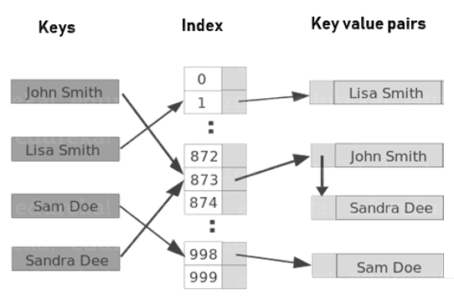Why Are Strings Immutable in Java? Key Factors and Advantages Clarified
Why Are Strings Immutable in Java? Key Factors and Advantages Clarified
Blog Article
What Is Immutable Strings and Just How It Functions
In the realm of shows, understanding the concept of immutable strings is paramount for producing safe and secure and durable applications. Unalterable strings describe strings that can not be altered after they are created, making certain information integrity and predictability within the code. This basic concept plays a crucial role in numerous programs languages and uses an one-of-a-kind approach to taking care of data. By discovering the details of just how immutable strings function, one can discover a world of advantages and possibilities that can raise the high quality and efficiency of software application growth.
The Fundamentals of Unalterable Strings
Immutable strings, as an essential concept in programming, are personality series that can not be changed when they are created. This implies that as soon as a string is assigned a value, that worth can not be changed. In languages like Python and Java, strings are immutable items, leading to numerous ramifications in regards to memory administration and data stability.
Among the vital advantages of unalterable strings is that they supply a feeling of safety in data manipulation. Considering that the content of an unalterable string can not be modified, it makes sure that the original information continues to be intact, decreasing the danger of unintentional adjustments during program implementation (Why are strings immutable in Java?). This property also simplifies debugging procedures, as developers can trust that as soon as a string is defined, its value will not be unintentionally changed
When a new string is produced based on an existing one, rather than customizing the initial string, the new value is kept independently. In general, recognizing the essentials of unalterable strings is crucial for grasping programs ideas and enhancing code efficiency.
Advantages of Immutable Strings
Building upon the safety and security and performance advantages of unalterable strings, their benefits expand to improving code dependability and simplifying simultaneous programs jobs. By being unalterable, strings can not be modified after creation, which removes the threat of unintentional changes in the information they keep. This intrinsic immutability makes certain that as soon as a string is produced, its value stays constant throughout the program's implementation, decreasing the possibilities of bugs triggered by unanticipated changes.
In addition, immutable strings add to code dependability by making it much easier to reason about the state of a program. Since strings can not be changed, designers can trust that a string will certainly constantly hold the very same worth, streamlining debugging and upkeep efforts. This predictability brings about extra steady and trustworthy codebases.

Application in Programming Languages
Within numerous programming languages, the unification of immutable strings is a basic element that influences just how information is dealt with and adjusted within code structures. The application of immutable strings differs throughout visit site various programs languages, with each language offering its very own mechanisms to sustain this idea.

In contrast, languages like C and C++ do not have integrated support for unalterable strings. Developers in these languages need to by hand carry out immutability by imposing rules within their code to avoid direct modifications to string things.
Finest Practices for Working With Immutable Strings
When managing unalterable strings in programming languages like Java and Python, sticking to best methods ensures safe and effective data adjustment. One of the essential finest techniques is to utilize StringBuilder or StringBuffer instead of straight manipulating strings, specifically when dealing with comprehensive concatenation procedures. These courses offer mutable alternatives for string adjustment, helping to avoid unneeded memory appropriations and enhancing recommended you read efficiency.
Another finest practice is to make use of string interpolation or format works given by the language rather than manual concatenation. This not only enhances readability but likewise aids in protecting against common pitfalls such as unintended string adjustments. In addition, when collaborating with delicate data such as passwords or API keys, it is critical to avoid storing them as ordinary text in immutable strings. Using protected storage systems like char ranges or specialized collections for handling delicate info helps reduce security dangers related to immutable strings.
Real-world Applications and Instances
Exploring sensible executions of unalterable strings in various sectors reveals their considerable influence on data integrity and system dependability. In the healthcare industry, immutable strings play a vital role in making certain the safety and confidentiality of person data. By preventing unauthorized alterations to sensitive details such as medical records and prescriptions, immutable strings assist keep conformity with strict personal privacy laws like HIPAA.
Banks additionally benefit from the immutable nature of strings to enhance the safety of customer data and purchase documents. Unalterable strings help avoid scams and unapproved modifications to financial information, offering a durable protection against cyber hazards and making certain the count on and confidence of customers.

Verdict
Best methods for working with unalterable strings include staying clear of direct alterations and making use of approaches that return new string objects. Real-world applications of immutable strings include data file encryption, caching, and string adjustment tasks.
Unalterable strings refer to strings that can not be changed after they are developed, making sure data stability and predictability within the code. When a brand-new string is created based on an existing one, instead than changing the initial string, the brand-new value is kept independently.In languages like Java and Python, strings are unalterable by default, indicating that when a string item is created, its worth can not be transformed - Why are strings immutable in Java?. Best practices for functioning with immutable strings consist of avoiding straight adjustments and utilizing methods that return new string items. Real-world applications of unalterable strings consist of information security, caching, and string control tasks
Report this page